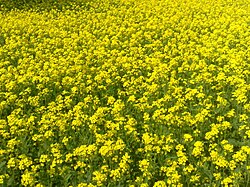When dealing with the parables, it is very important to keep certain things in mind:
- The interpretation will always be in line with the rest of scripture.
- There is a main point. We should avoid taking the analogy too far or look for "hidden" revelations.
- Keep with expositional constancy. This means that when an object represents something in one parable, it will be the same in another parable. The seed represents the word, birds are bad, the soil is our hearts, etc.
This concept is based on Jesus' comment in Mark 4:13 after telling the parable of the sower. He said, "And He said to them, “Do you not understand this parable? How then will you understand all the parables?"
The Parable of the Wheat and the Tares is clearly explained in this chapter, but points out the idea of the church and the expected state it will become. There will be genuine wheat producing fruit; followers of Christ, and tares (also known as
darnel) followers of the wicked one; who produce no fruit. This makes John 13:35 an important point, "By this all will know that you are My disciples, if you have love for one another." Remember, the fruit of the Spirit is love (
Gal 5:22-24).
So, in light of this, it is interesting how Jesus includes two other parables in between the parable and the explanation.
Parable of the Mustard Seed
Popular interpretation of this parable is that the church will grow into a mighty tree and help many and help all.
Two very important points when looking at this parable:
1. A mustard seed naturally grows into a
mustard PLANT, not a tree.
Growing into a tree is UNNATURAL growth.
2. Birds in the parable of the sower are BAD, not good.
I strongly believe this parable is a warning how the church will grow big in unnatural ways and birds (wicked one) will be dwelling there. I wish it were not so, but so many evil and horrible things have been done in the name of Christ and by His church.
Parable of the Leaven
This again is often taught on how the church will permeate and grow throughout the world. There are no previous parable objects we can look at, but throughout scripture, leaven is a picture of sin. So I believe the consistent interpretation of this parable speaks of how sin will permeate the church just as leaven does in bread.
So, Lord help us to be different. Help us to be those like the ones in the church in Philadelphia (
Rev 3:7-13), "brotherly love." God, please forgive us for so often misrepresenting You and not speaking Your truth in love. Amen.
